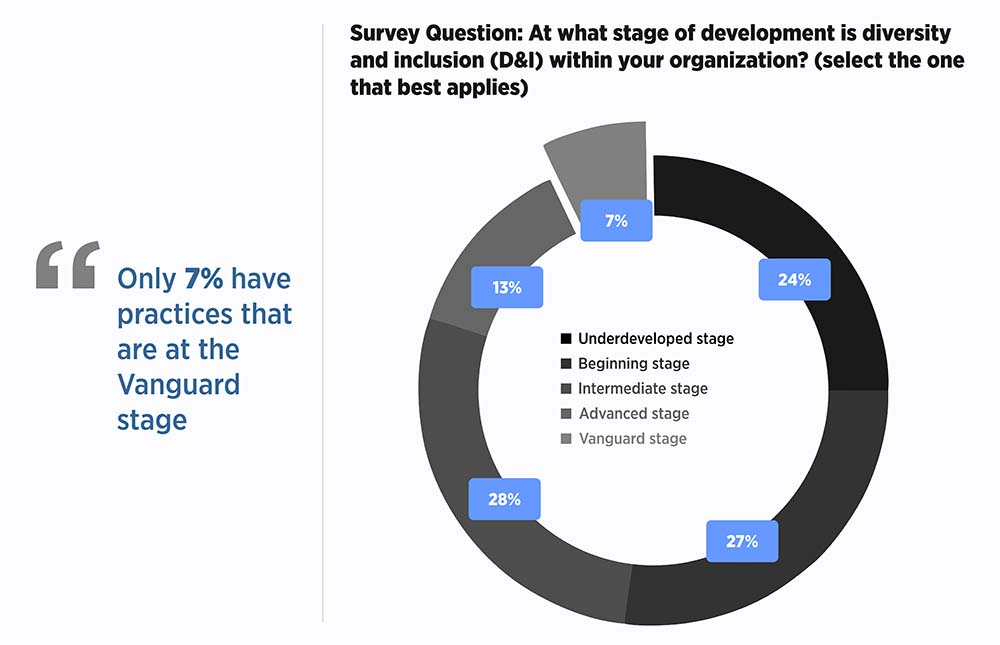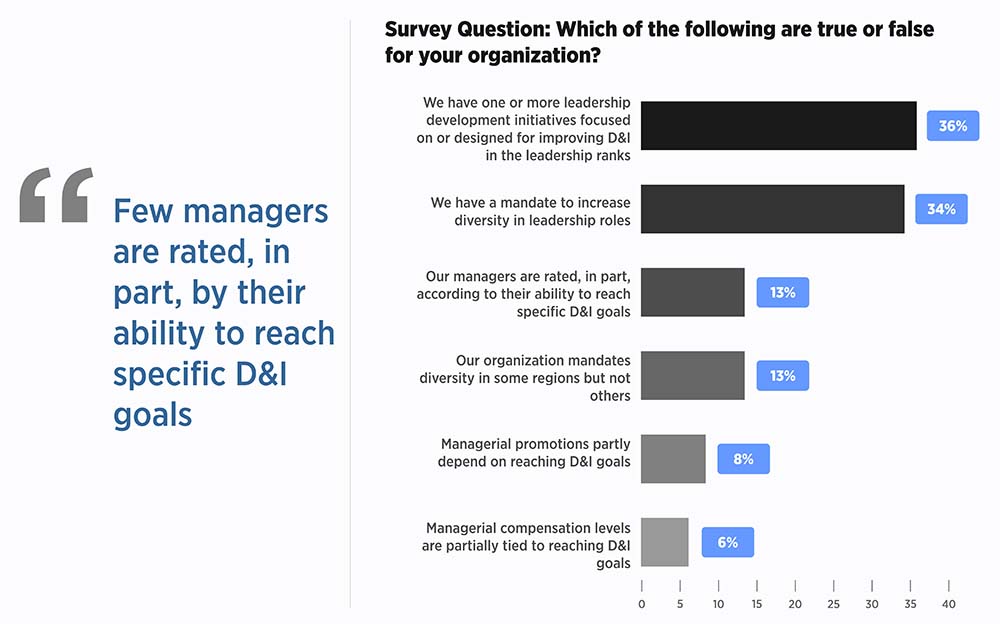
86 percent of companies have a Diversity and Equal Opportunity (D&EO) policy. But only 11 percent have real, measurable targets. – JUST Capital
We tried to identify the cause of this shocking lag, and unearthed an important observation.
“Over a quarter of employees at large companies do not feel that their direct manager is committed to Diversity and Inclusion (D&I).” – Forbes
The effect trickles across levels. Only 20 percent of respondents say that their organization is at an advanced level or vanguard level in implementing D&I initiatives, according to HR.com.


One respondent to Boston Consulting Group’s (BCG’s) Global Diversity Survey said:
“Our executive team, who is quite removed from our day, openly embraces diversity verbally. However, the people who deal with our employees need to be the ones whose hearts and minds are in this.”
The same BCG survey also shows that in companies where senior leadership is committed to diversity but managers aren’t:
Having the senior management 100 percent committed to D&I initiatives isn’t enough.
Frontline leaders interact with their teams all day. They are the closest mentors and role models for their reports. They evaluate, promote, communicate, designate, and interact with team members during meetings and therefore play a major role in driving employee experience in the organization.
Frontline managers can implement, neglect, and undermine any change initiative.
This impact is extensive. A Catalyst.org 2019 survey says, “45% of experiences of an inclusive workplace could be explained by “managerial inclusive leadership”.”
So, what must Talent Managers do to encourage frontline leaders? Five actions can greatly help:
Integrate D&I in the company’s systems through targeted programs and policies. Deloitte has outlined six inclusive character traits: “commitment, collaboration, curiosity, cultural intelligence, courage, and cognizance.”
“One of the things we often say at Deloitte is that being a leader means being an inclusive leader. It’s fundamental to our culture.” – Terri Cooper, Deloitte’s Chief Inclusion Officer
Frontline managers make up or influence 80 percent of the workforce. But they get only 20-30 percent of training attention. Talent managers can improve this facet by training frontline leaders in spotting and overcoming unconscious biases.
D&I training programs must be:
Salesforce’s learning solution, TrailHead, includes a module on inclusive leadership practices.
D&I policies must influence everyday workplace interactions. They must lead to authentic conversations, inclusive meetings, and fair work assignments.
Talent leaders need to create an environment in which people can feel free to use their voice.
In team meetings or group discussions, frontline leaders must encourage everyone’s participation. They must rotate roles so underrepresented people or groups don’t get caught up in unattractive roles.
Many frontline leaders resort to gut instincts while arriving at important decisions like plum assignments, promotions, and bonuses. Encourage frontline leaders to use decision-making tools.
Communicate expectations, and hold managers accountable for results.
D&I is a long-term investment and its savings come in the form of employee retention, commitment, and performance.
A Harvard Business Review study found that teams with inclusive leaders are:
Are you engaging your frontline leaders?

CredBadge™ is a proprietary, secure, digital badging platform that provides for seamless authentication and verification of credentials across digital media worldwide.
CredBadge™ powered credentials ensure that professionals can showcase and verify their qualifications and credentials across all digital platforms, and at any time, across the planet.

Please enter the License Number/Unique Credential Code of the certificant. Results will be displayed if the person holds an active credential from TMI.